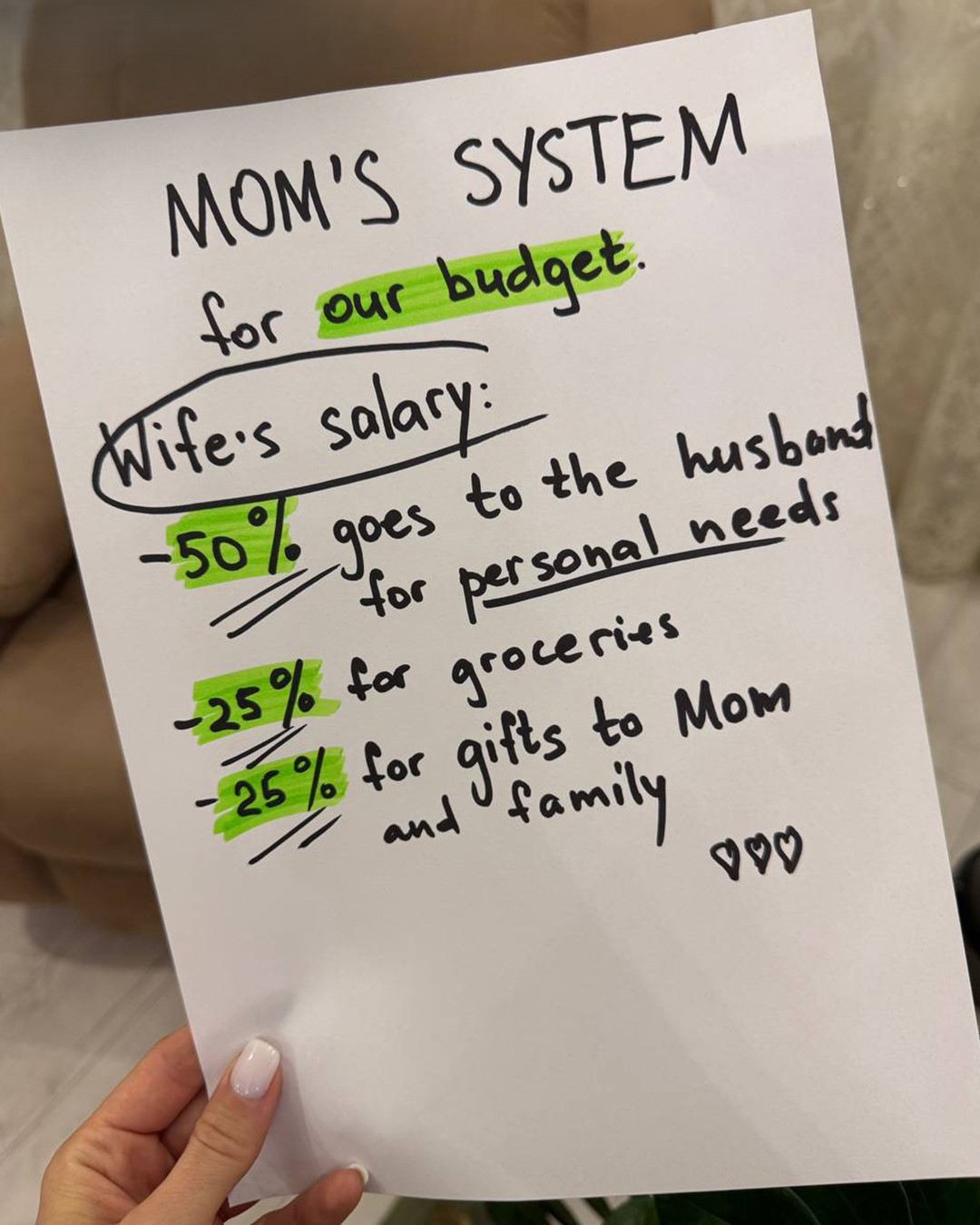Sandra had always imagined that the toughest part of marriage would be things like learning to share closet space, agreeing on home décor, or figuring out who takes out the trash. But nothing could’ve prepared her for the shock Matt dropped just one week after their dreamy wedding. They were curled up on the couch, the soft glow of a TV rerun flickering across the room, when he cleared his throat and said, “We should talk about our finances.” Expecting a conversation about budgets or joint savings, Sandra smiled—until he laid out his demand. “From now on, your entire paycheck goes to my mother. She’ll handle it: half for me, a quarter for bills, and the rest for family gifts.”
The words struck like lightning. Sandra’s heart raced as she looked at the man she thought she knew so well. Matt gave a practiced smile. “It’s how my parents have always done it. She’s amazing with money.” A wave of disbelief and anger surged inside Sandra. She had worked hard to establish herself as a graphic designer and build financial independence—and now she was supposed to surrender it all to someone else?
“No way,” she shot back, her voice shaking. “You can’t be serious.” But Matt stood firm. He repeated his mother Linda’s favorite saying—“A wife supports her husband”—like it was gospel. He claimed that by marrying into the family, Sandra had agreed to follow their way. When he refused to reconsider, she stormed out, threw on her jacket, and stepped into the cold night, tears stinging her eyes.
She didn’t sleep. Instead, she lay awake replaying every encounter with Linda leading up to the wedding. Her so-called “advice”—like Sandra should “prioritize her husband’s needs” or stories about how “our family thrives under my system”—suddenly took on a more sinister tone. What Sandra once brushed off as quirks were clearly rules she was expected to follow. By dawn, she had made a decision—she’d show Matt and Linda who they were dealing with.
The next morning, Sandra greeted Matt with a calm smile. Over coffee, she told him she’d had a change of heart and was open to trying his mother’s financial system. Matt beamed with relief. She transferred her next paycheck into their joint account—watching the satisfaction light up his face—and even texted Linda, “Can’t wait to learn your budgeting tricks, Linda! Tell me where to start.”
Linda’s response was quick and gleeful: “So proud of you, dear! You’ll be running things smoothly in no time.” Sandra smiled to herself—this was just the beginning.
Over the next few days, Sandra kept a close eye on Linda’s lifestyle. For someone who preached frugality, Linda had a new designer bag almost every week and jewelry that sparkled like it belonged in a showroom. Suspicion bloomed. One evening, as Matt showered, Sandra peeked into his study and found a black notebook with Linda’s handwriting. Inside were records of extravagant purchases, expensive dinners, mounting credit card debt—even borrowed money from family members.
Her pulse quickened. She copied what she found, compiling a neat folder of evidence. Meanwhile, she kept playing the role of the dutiful daughter-in-law, praising Linda’s financial “expertise” with a smile. Matt, unaware, enjoyed the harmony.
That Friday, Linda showed up with a folder in hand and her usual smug expression. “Time to go over the finances,” she announced. Sandra welcomed her with a polite nod. As Linda began listing where Sandra’s salary had been allocated, Sandra gently interrupted. “Actually, before we continue, I have something to share.” She slid her own folder across the table.
Matt stared in shock as Sandra laid out receipts, statements, and transaction logs. “You asked me to trust your system,” she said softly, “so I figured it was fair to take a closer look at yours.” Linda turned pale, then flushed red with embarrassment and rage. She stammered accusations of privacy invasion, but the damage was done. Matt’s expression shifted—from confusion to heartbreak.
Without raising her voice, Sandra opened a new bank account on her phone and showed the screen to both of them. “My money stays with me now,” she said. Linda stood up wordlessly, grabbed her folder, and left.
Matt dropped onto the couch, his face in his hands. “I’m so sorry. I had no idea…” he said, his voice breaking. Sandra stood tall. “You didn’t know because you never questioned her. Now it’s time to decide—are we equal partners, or is this just your mother’s show and I’m a background character?”
Tears filled Matt’s eyes as he nodded. “You’re right. I’ve been blind. I want to fix this.” That night, he called his mother and told her she would no longer be handling their finances. From then on, he and Sandra would manage their life together, as equals.
A week later, things had started to change. Matt pitched in with chores, talked honestly about money, and treated Sandra with the respect she’d always deserved. One night, he asked quietly, “Are we okay?” Sandra reached for his hand and smiled. “We’re getting there.” And for the first time in days, she truly believed it.
